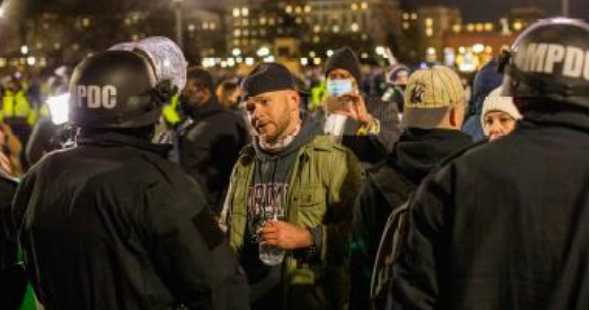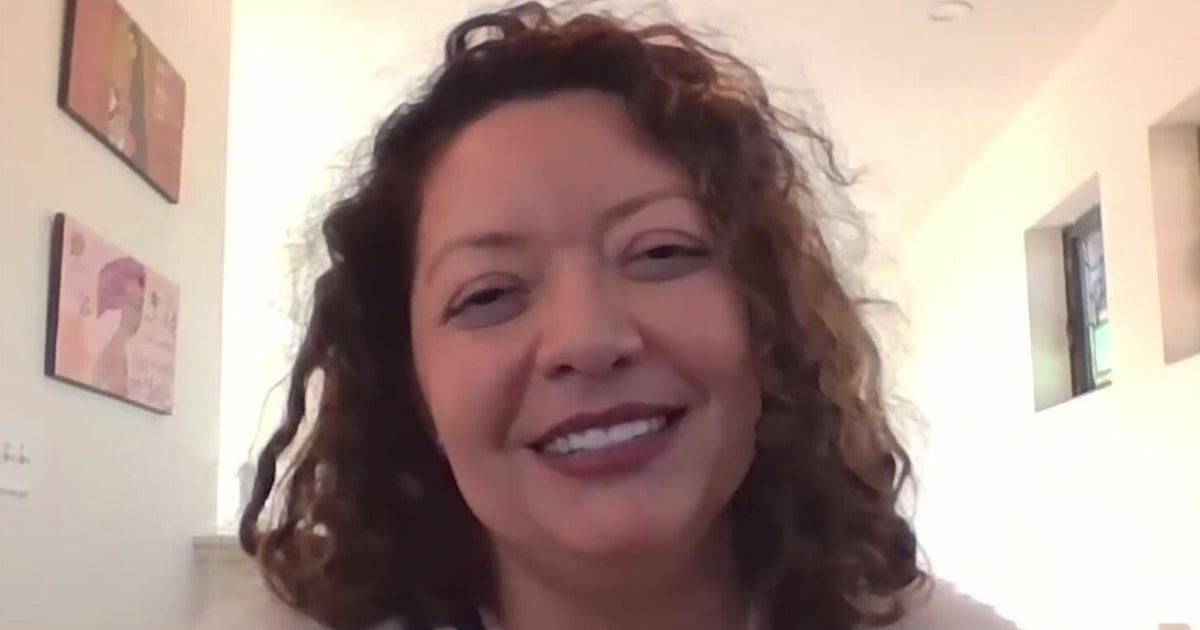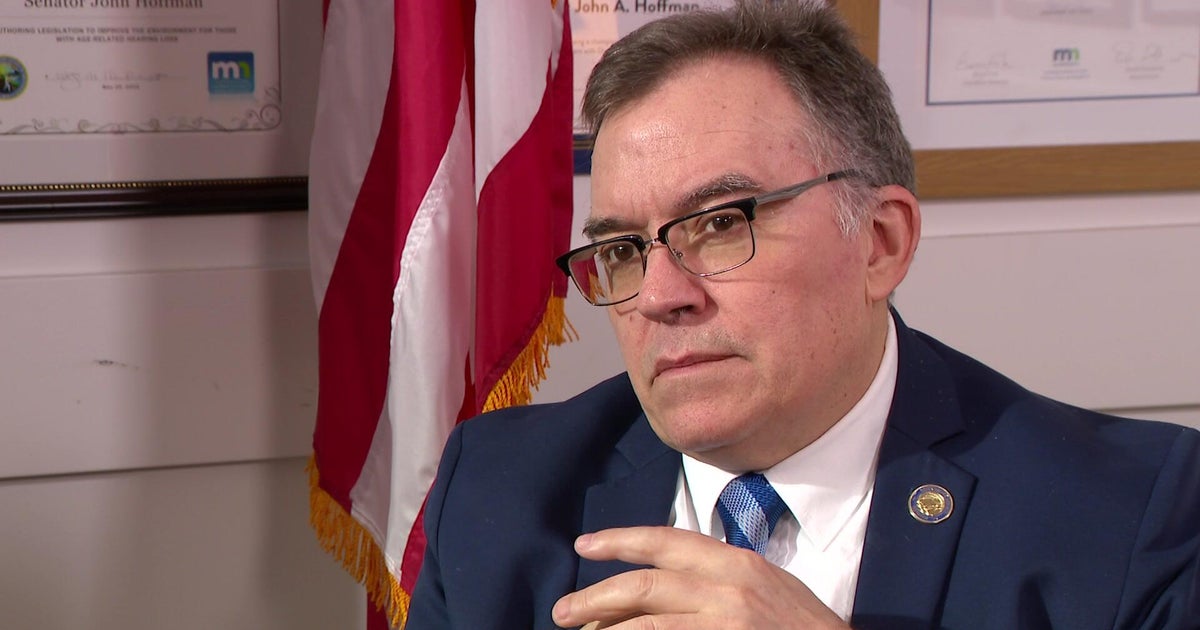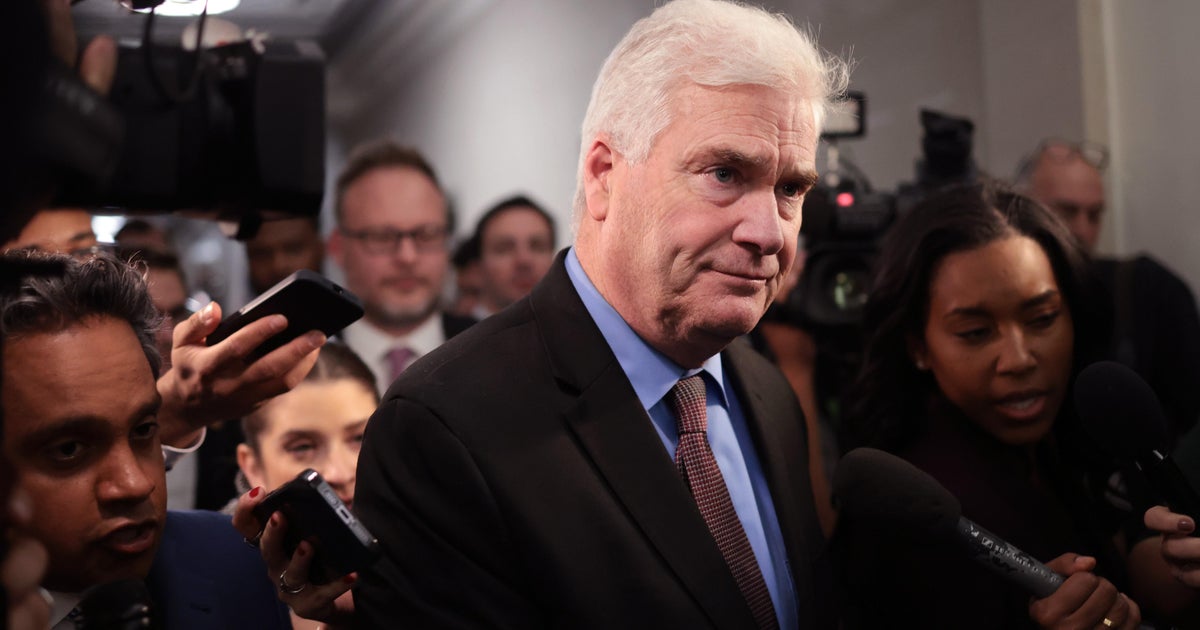UChicago professor: Assassination attempt on Trump comes in climate of rising political violence in U.S.
CHICAGO (CBS) -- Over the last few years, there has been an uptick in political violence in the U.S.—and while the motivations may vary, the motive for the assassination attempt on former President Donald Trump on Saturday remained unknown a day later.
University of Chicago Professor of Political Science Robert Pape specializes in international security affairs—and has studied political violence for years. He now also serves as the director of the Chicago Project on Security & Threats, and since 2021, he has studied political violence in America following the Capitol insurrection of Jan. 6 of that year.
Pape's research and findings show how 270 million Americans feel about political violence—and how the country reached this point.
"And what we found, right from the beginning, is a significant amount of support for political violence in the mainstream. We found nearly 5 to 10% of American adults were supporting political violence to restore Donald Trump to the presidency. Over that three-year period of time, it has ebbed and flowed," said Pape. "And we now find that 10% of American adults support the use of force to stop Donald Trump from becoming president."
Darius Johnson's full interview with UChicago Professor Robert Pape:
Pape's latest study with the Chicago Project on Security & Threats, released in June, showed 6.9% of Americans—or 18 million adults—believe the use of force is justified to restore former President Trump to the White House, while 10% of Americans—or 26 million adults—believe political violence is justified to prevent Trump from becoming president again.
The study found that both of these groups that support political violence are active and dangerous, and have the potential for growth.
Of the 26 million who support political violence to keep Trump from being president again, 22 million have access to internet organizational tools, 9 million own guns, 6 million believe police officers who are violently attacked deserve it, 5 million attended a protest in the past 12 months, 3 million are militia members or know someone who is a militia member, and 2 million had prior military experience, the study found.
Of the 18 million who support violence to restore Trump to the White House, 16 million have access to the internet and organizational tools; 8 million own guns; 7 million believe those who stormed the Capitol on Jan. 6, 2021 were patriots; 4 million or militia members or know someone who is a militia member, and 2 million attended a protest in the past 12 months, and 1 million had had prior military experience, the study found.
The survey of 2,061 people was conducted between June 20 and June 24, and had a margin of error of +/-2.97%. The conclusions on the number of people who support political violence either for or against getting Trump back into the White House are based on the study's use of nationally-representative probability samples—the gold standard in polling.
The questions in the survey were designed to track the scope and drivers of support for political violence on both the left and right.
Meanwhile, Pape said violence has been part of several other highly-charged political events over the past several years—and the people behind the violence believed themselves to be justified.
"We saw 7 to 10% of the George Floyd protests were riots. Those folks thought they had legitimate reasons to riot," said Pape. "We saw the January 6 riot against the Capitol. Those folks thought they had legitimate reasons to riot. We saw the Palestinian, pro-Palestinian, pro-Hamas protest, a fraction of which we're storming buildings and throwing bricks and so forth and so on. And those folks thought they had legitimate reasons to be acting violently."
The last time a president—sitting or former—was shot was March 30, 1981, when President Ronald Reagan was shot while walking back to his limousine after speaking at the Washington Hilton in Washington, D.C. Six years earlier, would-be assassins tried to shoot President Gerald Ford on two different occasions, but he was not struck in either.
But Pape raised comparisons to 1968—the year Robert F. Kennedy was shot and killed while giving his victory speech for the California primary at a hotel in Los Angeles. Kennedy was assassinated in June of that year, two months after Dr. Martin Luther King Jr. was assassinated at the Lorraine Motel in Memphis.
The year 1968 was also infamous for political turmoil that sometimes involved violence—including unrest in Chicago after Dr. King's assassination, mobilization against the Vietnam War, and violent clashes between police and protesters at the Democratic National Convention in Chicago.
"There are some superficial similarities to what's happening today—to what happened in the 1960s; that we're fighting in the 1960s a foreign war, very controversial foreign war in Vietnam," Pape said. "We also have a situation where we have a wounded president, Lyndon Johnson, in 1968. Joe Biden here now, he's not as wounded as President Johnson. But that you also have, in '68, the Democratic Party in a crisis. Well, here we have a Democratic Party in crisis. So these are all the similarities, but some of the root factors are very different."
Anxiety about demographic change cited as cause for political violence
How did America get to this point in 2024? Pape cited demographic change.
"We are going to a transition where we're becoming; we're going from a white majority democracy to a white minority democracy. Right now, about 62% of Americans are white. If you had gone back 30 years, that would have been 82% would have been white," Pape said. "So this this is not always been this way, and this demographic change has been happening for years, and actually for decades. But we're at the tipping point of change now some parts of the country don't want that change."
Pape said anxiety about demographic change is behind the rise of right-wing populism in America.
"So you're getting a lot of political anger around this major demographic change, and this demographic change is going to go on for about another 10, 15 years," he said. "So this is this is where Donald Trump came from in the first place, and this is why his movement is growing."
Pape added that the current crisis is serious—and wishful thinking about how it will end isn't helpful.
"We really need to recognize we're going through a crisis in our American democracy, and this is a manifestation of this crisis, what we just saw yesterday, and these continuous hopes that everything is just going to fade away is just simply unrealistic, given the dynamics I just explained," he said.
The anxiety about demographic change that Pape said was spurring political violence is not going away.
"This is not ending just with this election. This. What we are seeing is does the demographic changes continue, and the consternation about that gets worse and worse," said Pape. "Our politics is getting worse. The violence is getting worse, and this is the real crisis in our democracy."
He said this is especially alarming for a country that has remained at the forefront.
"The United States was the world's first genuine democracy 248 years ago, and we're now becoming the world's first truly multiracial democracy," Pape said.
As political violence remains present, Pape urged unity among the American people—while issuing a challenge to political leaders.
"The crucial thing that should happen, and needs to happen, to hold our country together—especially in the next six to nine months—is for political leaders on both sides of the aisle to condemn violence if it's supported by their side," Pape said. "It's been easy for Republicans to condemn violence that's coming from the left, or it's been easy for Democrats to condemn violence coming from the right—say, January 6. The hard thing is for political leaders to condemn violence coming from their own side. But this is absolutely critical."
If lawmakers on both sides do not issue that broad condemnation of political violence, Pape said it's likely that the violence will just keep getting worse.
"With the assassination attempt against Donald Trump, we'll start to get retaliatory political violence against Democrats and Democratic leaders," he said. "We can start to see spirals of political violence that can occur so and this is going to be something that, once those spirals start to occur, this is going to be extremely hard to control, and put those genies back into the bottle."
Pape also got into social media and the spread of misinformation. He said social media continues to add fuel to the fire.








